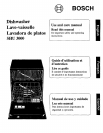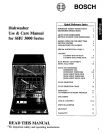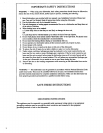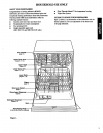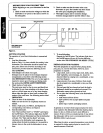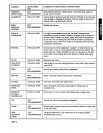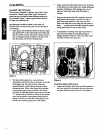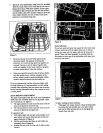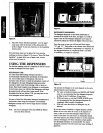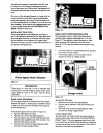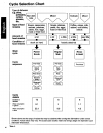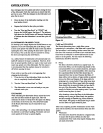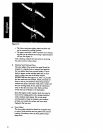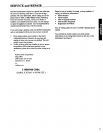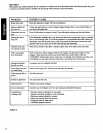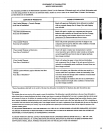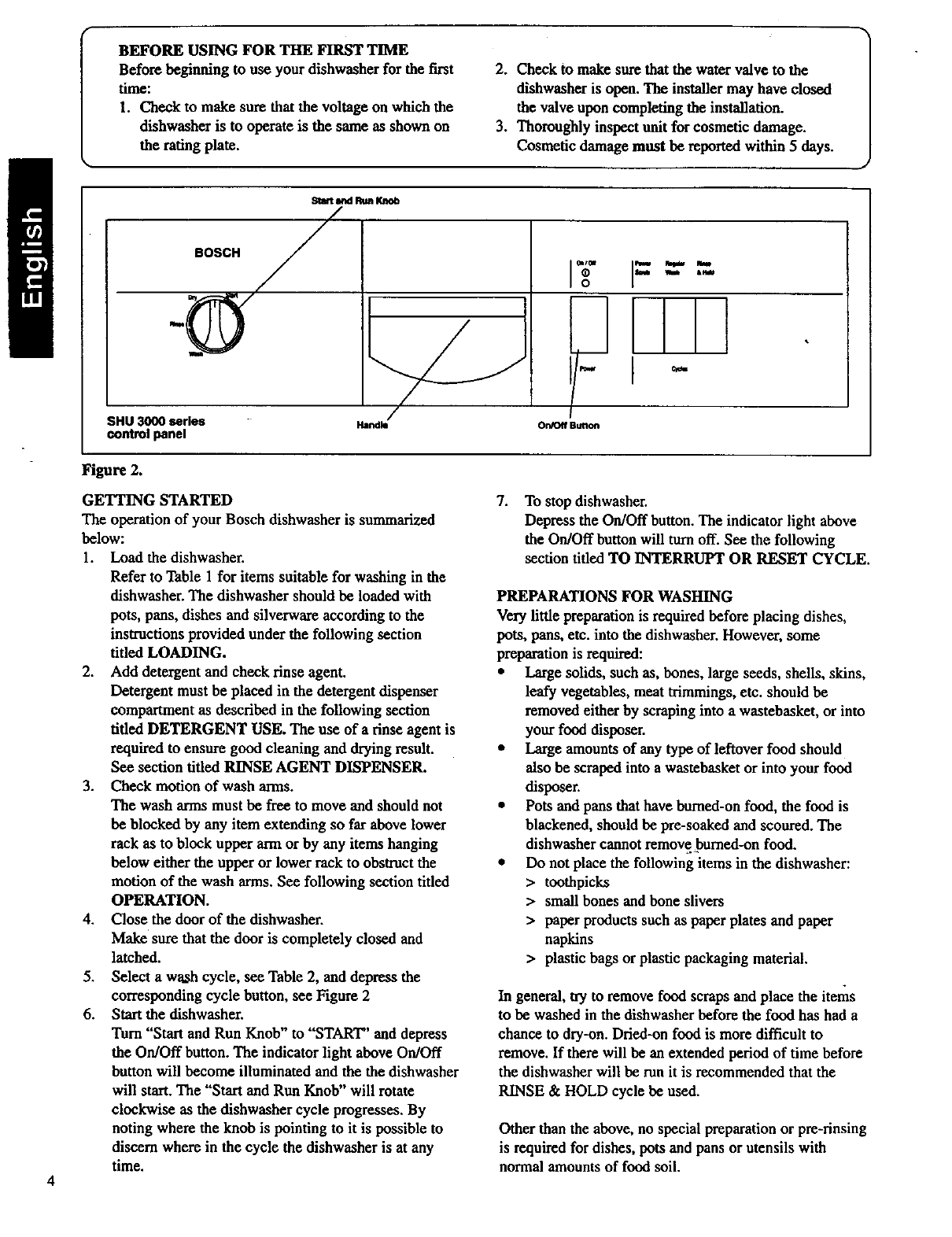
BEFORE USING FOR THE FIRST TIME
Before beginning to use your dishwasher for the first
time:
1. Check to make sure that the voltage on which the
dishwasher is to operate is the same as shown on
the rating plate.
2. Check to make sure that the water valve to the
dishwasher is open. The installer may have closed
the valve upon completing the installation.
3. Thoroughly inspect unit for cosmetic damage.
Cosmetic damage must be reported within 5 days.
I I=
I
SHU 3000 series
control panel
Figure 2.
Handle
GETTING STARTED
The operation of your Bosch dishwasher is summarized
below:
1. Load the dishwasher.
Refer to Table 1for items suitable for washing in the
dishwasher. The dishwasher should be loaded with
pots, pans, dishes and silverware according to the
instructions provided under the following section
titled LOADING.
2.
OniO_ Button
.
4.
5.
6.
7,
To stop dishwasher.
Depress the On/Off button. The indicator light above
the On/Off button will turn off. See the following
section titled TO INTERRUPT OR RESET CYCLE.
PREPARATIONS FOR WASHING
Very little preparation is required before placing dishes,
pots, pans, etc. into the dishwasher. However, some
preparation is required:
Add detergent and check rinse agent.
Detergent must be placed in the detergent dispenser
compartment as described in the following section
titled DETERGENT USE. The use of a rinse agent is
required to ensure good cleaning and drying result.
See section titled RINSE AGENT DISPENSER.
Check motion of wash arms.
The wash arms must be free to move and should not
be blocked by any item extending so far above lower
rack as to block upper arm or by any items hanging
below either the upper or lower rack to obstruct the
motion of the wash arms. See following section titled
OPERATION.
Close the door of the dishwasher.
Make sure that the door is completely closed and
latched.
Select a w_h cycle, see Table 2, and depress the
• Large solids, such as, bones, large seeds, shells, skins,
leafy vegetables, meat trimmings, etc. should be
removed either by scraping into a wastebasket, or into
your food disposer.
• Large amounts of any type of leftover food should
also be scraped into a wastebasket or into your food
disposer.
• Pots and pans that have burned-on food, the food is
blackened, should be pre-soaked and scoured. The
dishwasher cannot remove burned-on food.
• Do not place the following items in the dishwasher:
> toothpicks
> small bones and bone slivers
> paper products such as paper plates and paper
napkins
> plastic bags or plastic packaging material.
corresponding cycle button, see Figure 2
Start the dishwasher.
Turn "Start and Run Knob" to "START" and depress
the On/Off button. The indicator light above On/Off
button will become illuminated and the the dishwasher
will start. The "Start and Run Knob" will rotate
clockwise as the dishwasher cycle progresses. By
noting where the knob is pointing to it is possible to
discern where in the cycle the dishwasher is at any
time.
In general, try to remove food scraps and place the items
to be washed in the dishwasher before the food has had a
chance to dry-on. Dried-on food is more difficult to
remove. If there will be an extended period of time before
the dishwasher will be run it is recommended that the
RINSE & HOLD cycle be used.
Other than the above, no special preparation or pre-rinsing
is required for dishes, pots and pans or utensils with
normal amounts of food soil.



